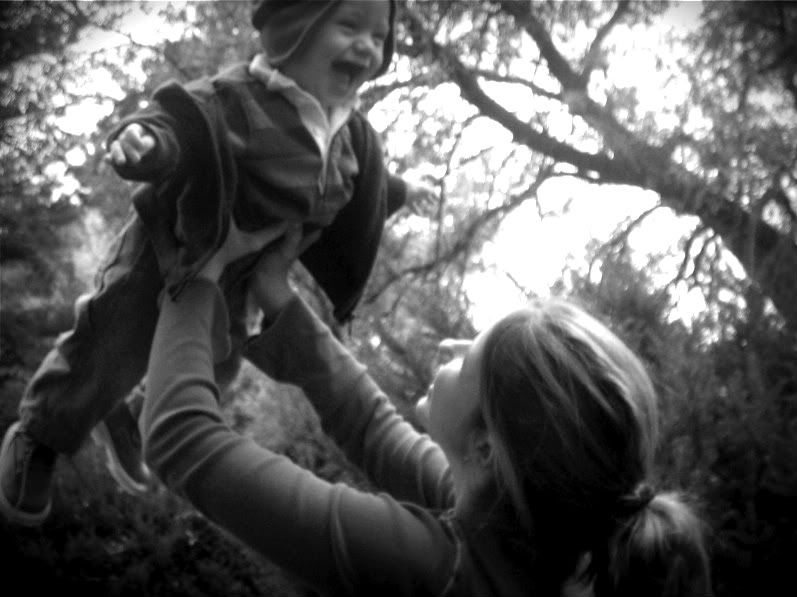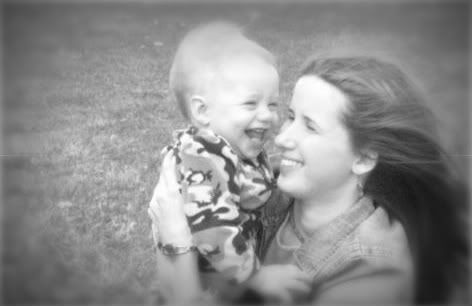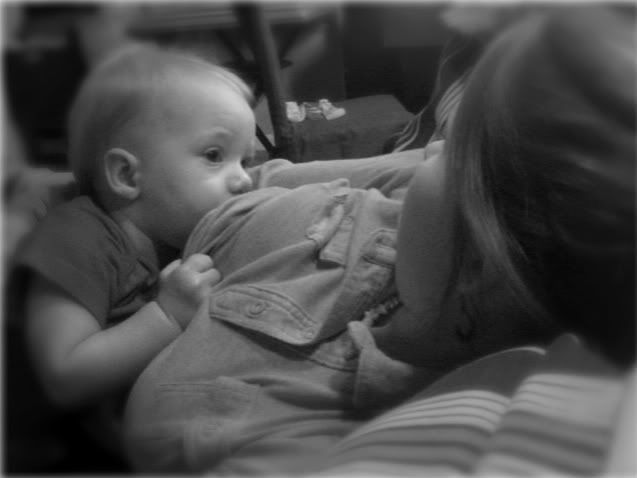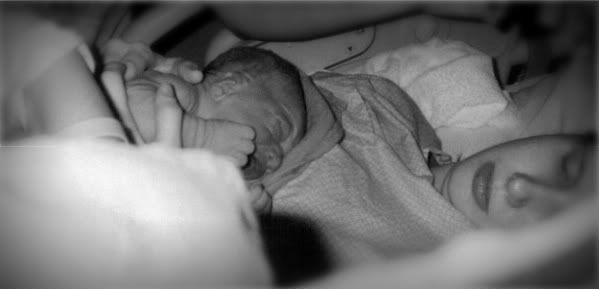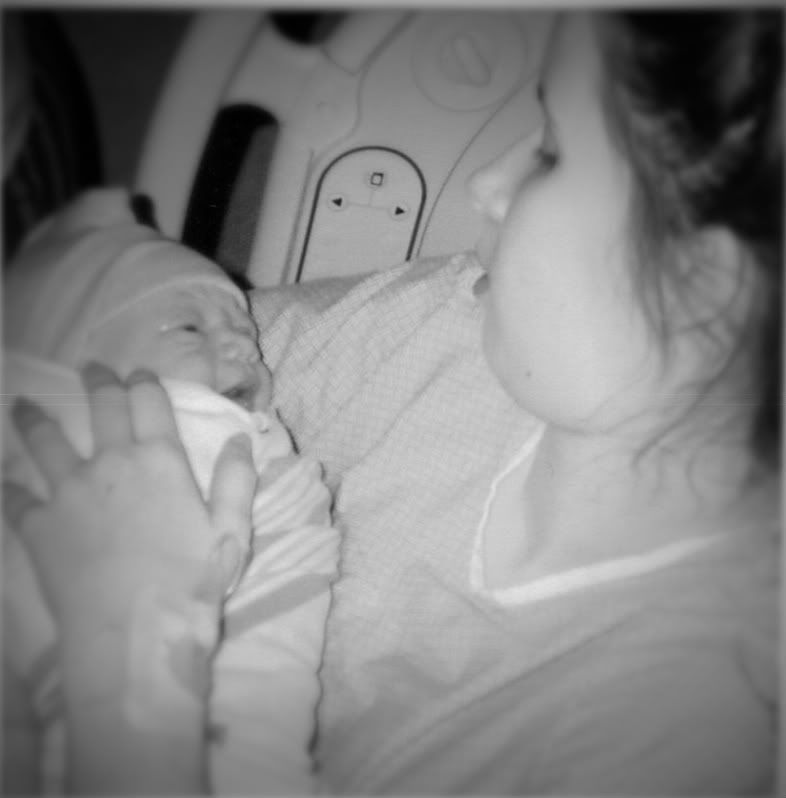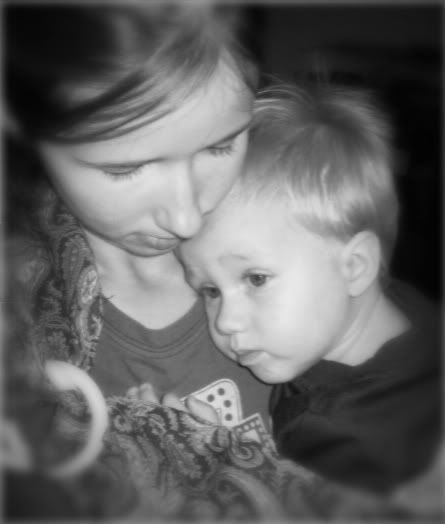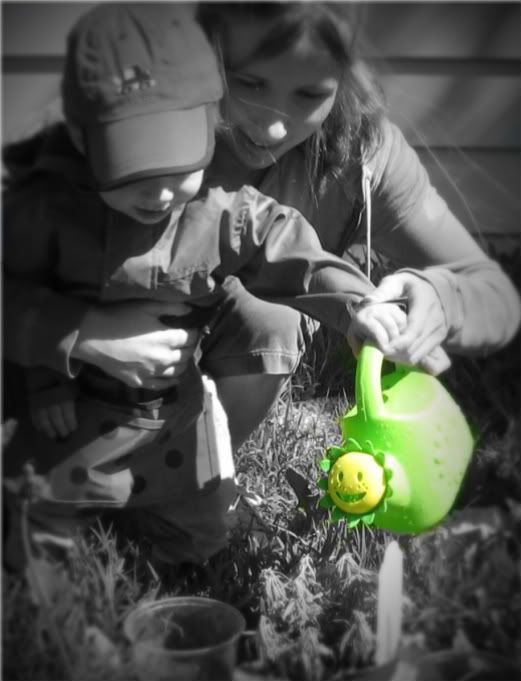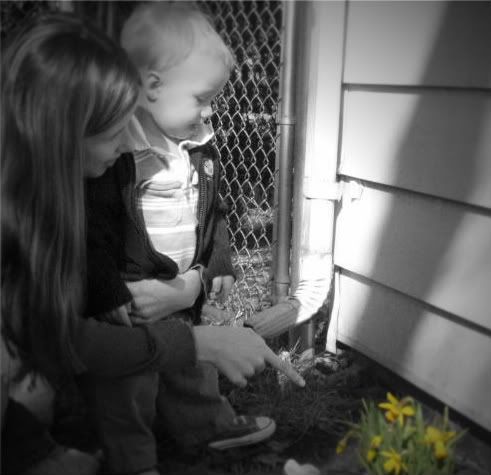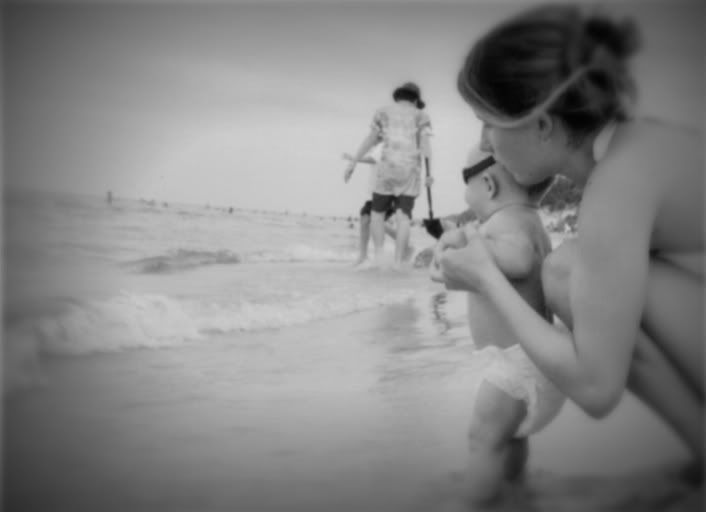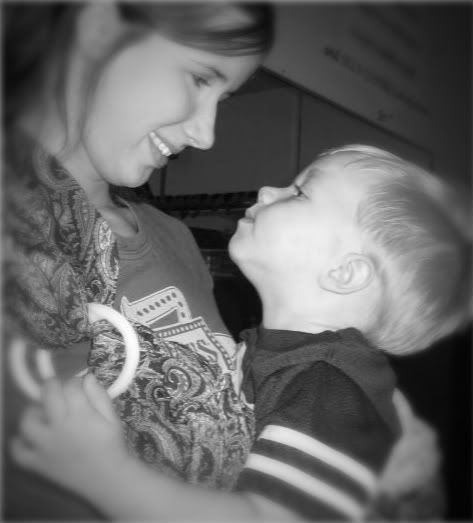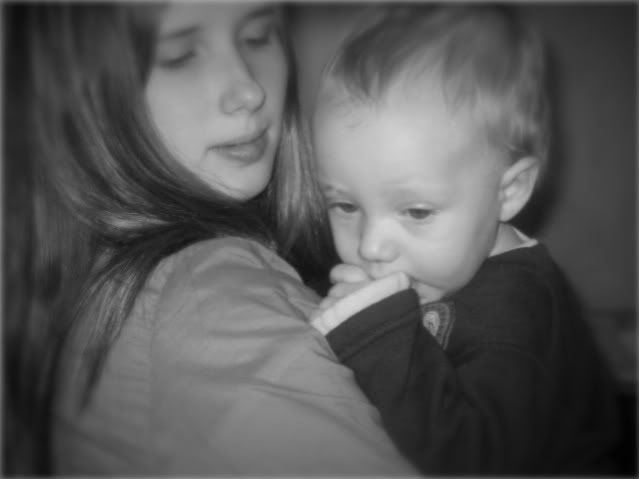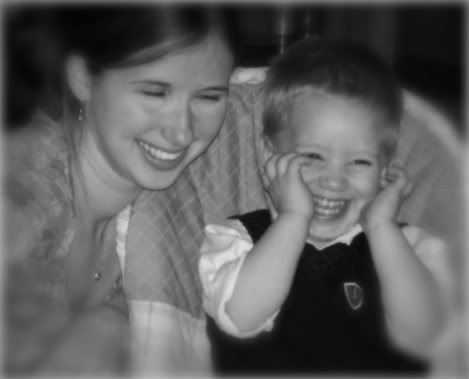 |
| Damien, the day he turned seven months old |
Early last June, sitting in a hospital bed holding my tiny newborn, all wrinkled, blotchy-skinned, and helpless, it was hard to fathom that in just a little over 200 days he would be creeping [crawling], standing, "talking", understanding, and charming at the level he is now.
Seven months passes by in the blink of an eye.
Seven months is also another benchmark age on the Developmental Profile for the average age for babies to achieve stage III brain function (using the midbrain and subcortical areas).
In speaking of
the profile, the
IAHP says
"The time schedule is highly variable and depends, not upon genetic factors, but rather upon the frequency, intensity and duration of the stimuli provided to the brain by the child's environment, which is notably and most often his family."
The idea is that the brain grows by use, not by some biological alarm clock. Opportunity, frequency, encouragement, and to a lesser decree, personality will determine development.
Our goal is, of course, to give our baby as much of these things as possible and do all we can to help him, not hinder him.
 |
| Damien, 5 months, pauses his creeping adventures for a smile |
1. Stage III Mobility: Creeping on hands and knees, culminating in cross pattern creeping
Age achieved: 5 months, 2 weeks old
Description: "Creeping" is what most of us know as "crawling" - that cute little hands and knees movement that typifies the picture of babyhood.
"Cross pattern creeping" refers to the cross pattern exhibited when a baby uses his opposite extremities simultaneously to move while on his hands and knees - right arm and left leg go forward, then left arm and right leg go forward.
Damien achieved the official "cross pattern creeping" at five months old. He has been "crawling" in other formations - more or less scooting, hopping, lunging, twisting, and rolling - since four months. He has had movement on his stomach (
pushing his legs off the ground and propelling himself forward) since birth.
His most current interest is pulling himself to standing, which he does essentially all day, every day, creeping around the house finding different pieces of furniture that can act as a support frame for his vertical position.
 |
| Damien, at four months, babbling on |
2. Stage III Language: Creation of meaningful sounds
Age achieved: 1-2 months
Description: "
Creation of meaningful sounds" is when the baby essentially begins to make noises, beyond a basic cry, that have meaning attached to them.
He begins to be able to communicate not only his needs, but his wants, moods, feelings, and preferences. These are not necessarily first English words, but words for him nonetheless.
Damien began creating meaningful sound at about 1-2 months old. He began to coo when he was happy, "yell" when he wanted attention, and whine when he was tired.
At four months, Damien said his first English word - "dada". He still attaches meaning to that word and says it when he sees pictures of his dad. His second English word, "more" (
which comes out more like "muh" or "mah") began the day he turned seven months old. Ever since then, he creeps up to me and says "muh" when he wants food, or while we are eating and he wants another bite. (So he has achieved
stage IV language development, "
Two words of speech used spontaneously and meaningfully", an average 12 month milestone).
 |
| Damien, at six months, practicing using the prehensile grasp with small objects |
3. Stage III Manual: Prehensile grasp
Age achieved: 3 months
Description: The "prehensile grasp" is when a baby is able to voluntarily pick up objects using his whole hand. The four fingers and palm are mainly used, while the thumb is usually not.
Damien achieved the prehensile grasp at around at the end of his third month. The first object that he was able to easily grab and pick up were some of Hunter's nerf gun bullets. He is now working on the pincer grasp (picking up objects with thumb and forefinger) and has nearly mastered it (an average 12 month milestone).
 |
| Damien, at two months, had grown tired of his detail board and was looking around the room for new things |
4. Stage III Visual Competence: Appreciation of detail within a configuration
Age achieved: 1.5 months old
Description: At birth, babies can see only light and dark. Soon after, babies begin to see outlines.
The next step is being able to see "detail within a configuration", for example the details of mother's face within the outline of her head.
Damien achieved this stage of development at approximately 4-5 weeks of age. He began to smile in response to facial expressions (
without sound). He began to study detail on his daddy's camouflage uniform, or the patterns on his bouncy seat. By two months, he was studying details from across the room.
By 5-6 months, he had achieved the next stage (
level IV) of development: depth perception. At seven months now his depth perception is quite good - he creeps quickly and easily without running into things much anymore, and reaches well with good accuracy.
 |
| Damien, seven months, quite happy with himself that he is no longer afraid of the vacuum |
5. Stage III Auditory Competence: Appreciation of meaningful sounds
Age achieved: 2 months
Description: Baby listens to many sounds in his environment from birth, and will soon begin to understand their meaning. For example, the bathtub water running, the door opening, and mother's voice. In family members' voices,
he begins to understand the tone of voice and their meanings.
Damien began to be comforted by a soothing voice at around two months old. He started laughing at silliness, and being scared by upset voices. He was deathly afraid of the vacuum for a while, now he seems to have proudly conquered his fear.
Between one and four months, he also achieve the next stage (
level IV) of development: "
Understanding of two words of speech". At four weeks he began to understand the meaning of the word "nurse". Other words soon followed, including "potty" (
and other words associated with it) and "up".
 |
| Damien at two months, laughing with a tickle |
6. Stage III Tactile Competence: Appreciation of gnostic sensation
Age achieved: 2 months
Description: "Gnostic" comes from the Greek root word for knowledge, "gnosis". Gnostic sensation means, literally, "knowing sensation". At birth babies cannot feel very well - they may not respond consistently to pain, hot, or cold. Soon they begin to respond to these more intense sensations quickly and instantly.
The next stage is to be able to respond to more variances in sensation and be able to appreciate them - for example, the subtleties of cool and warm, the peaceful calm of a soothing massage, or the humor of a boisterous tickle.
Damien achieved this stage at about 2 months old. He began to respond to tickles, enjoy his
infant massages, and notice the differences in textures and what made him comfortable or uncomfortable. At four months, he achieved
stage IV, "
Tactile understanding of the third dimension in objects which appear to be flat". This is when he started to notice small things (
like specks on the floor), or things that clearly looked flat (
like a piece of paper) and started feeling for them and trying to grab them.
Summary
So in summary, this is what my notes on Damien's little
Developmental Profile look like (in the back of my
How Smart is Your Baby book) for him at seven months, one day old:
Motor:
Sensory:
He is still perfecting his
stage IV (
green) areas, but overall is doing very well. Environment really does make such a huge difference!
Thank you for your comments!
Damien is 7 months, 0 week old
























